Boston College Researchers at the Museums
Over the past year, the ABCD (All Boston College Development) psychology labs have been visiting The Discovery Museums in Acton, MA to conduct studies with the museum visitors and spread the word about psychological science. Our studies explore a variety of aspects of child development, ranging from how children think about numbers and math, learn language, and learn to treat others fairly, among other things. Because we have studies for children of all ages (1.5-15 years!), we have been able to work with a diverse population of families at the museums. Each study is different: children may play a game on a computer, interact with puppet characters, or just engage in a conversation with one of our research assistants. Children who participate spend about 10 minutes with our researchers, and then get a sticker for their involvement. Our researchers then spend a few minutes with the family to discuss the games they played, and how our studies more broadly relate to developmental psychology.
The partnership between the ABCD labs here at Boston College and The Discovery Museums has given our undergraduate research assistants a unique opportunity to interact with parents and children in a new environment. Below, one of our undergraduates, Jenna Moscarelli, describes her experience running studies at the museums, and how it has shaped her time as a research assistant thus far.
-------------------------------------------------------------
As an undergraduate research assistant in the Boston College Infant and Child Cognition Lab, I have truly valued my time spent as a researcher at The Discovery Museums. It is awesome to see children at the museum so excited about participating in our studies and so eager to contribute to current research. Parents at the museum have enjoyed watching their children play and learn with me and other undergraduates, and have also benefitted from learning about the newest research in developmental psychology. Many parents at the museum have even participated in related adult studies of their own!
Conducting research at The Discovery Museums has also personally helped me improve my science communication skills, both in speaking about our lab’s studies, and about research as a whole. Because of my time spent there, I am now confidently able to explain the goals of our lab's studies to a wide range of audiences, including other scientists, parents, and children of all ages.
My favorite part of testing at the museum is just witnessing the overall enthusiasm of the visitors there. Children will hear about the college researchers upstairs and sprint to our table, asking about what games we have and how they can play with us. Often entire families come to our table, and each child, along with the parents, can take part in a different one of our studies. The Discovery Museums definitely foster a special population of both children and adults, and it is so rewarding to be able to work with people so excited about science. It makes my job as a researcher easy!
Jenna Moscarelli is an undergraduate researcher in the Boston College Psychology Department
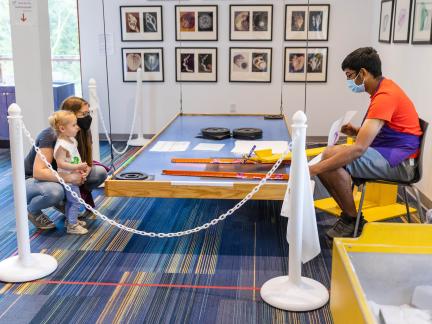
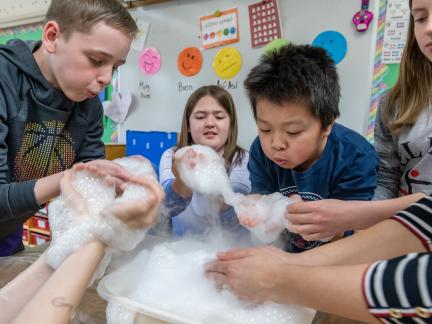
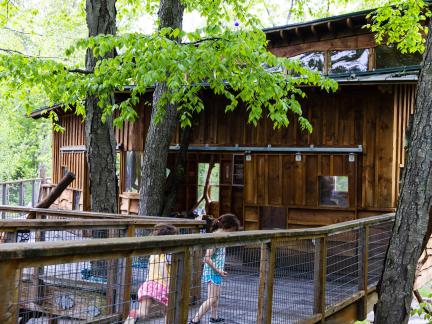
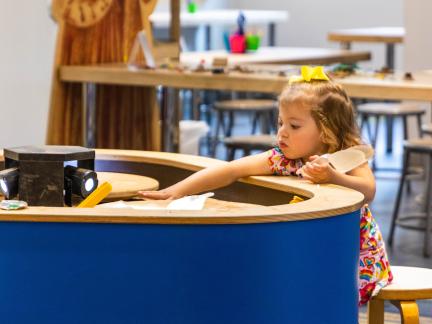

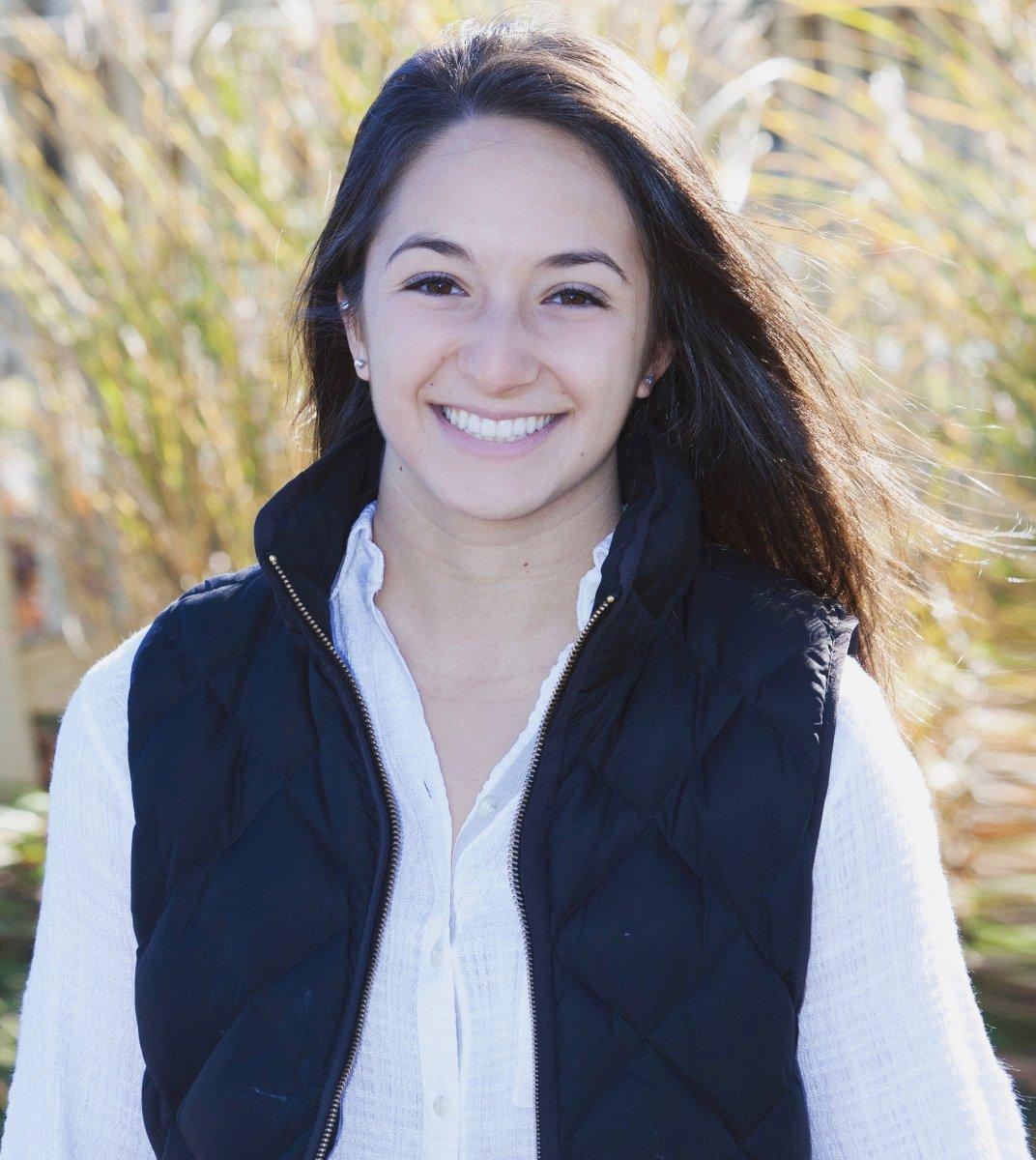
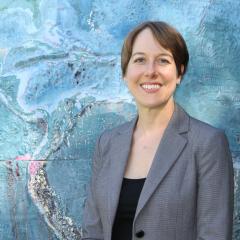
Comments
Add new comment